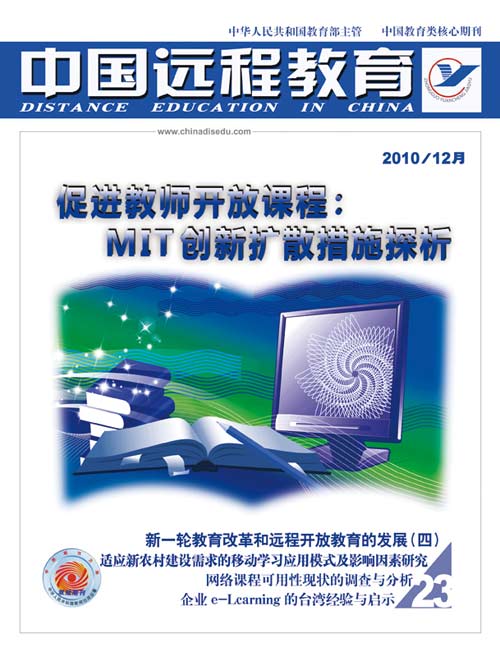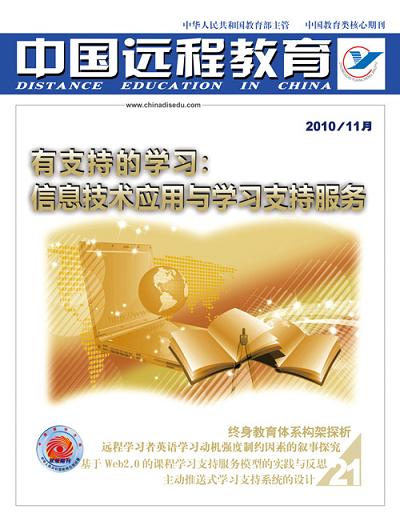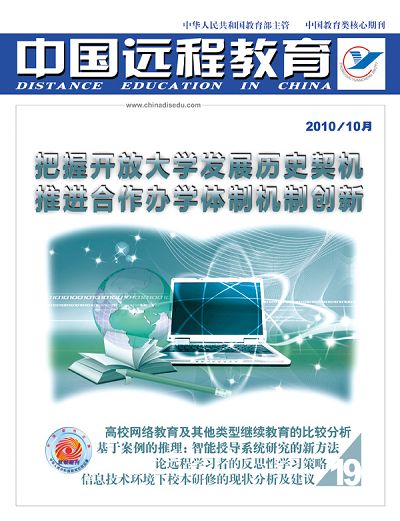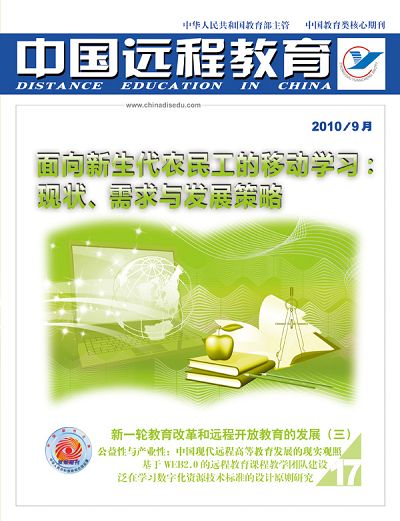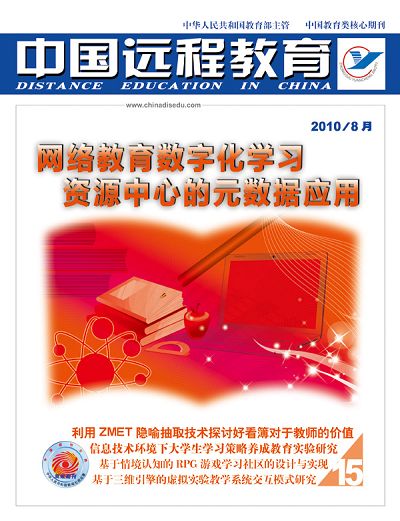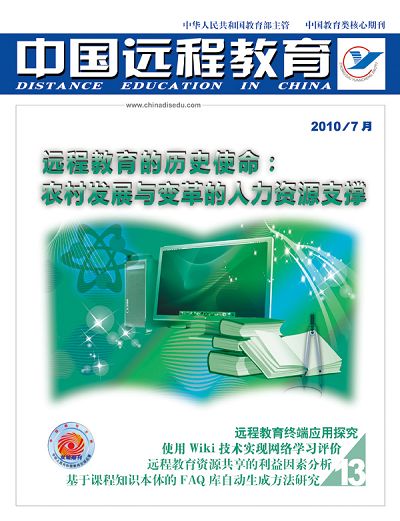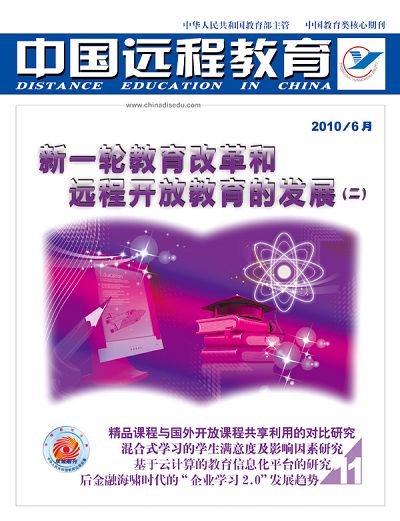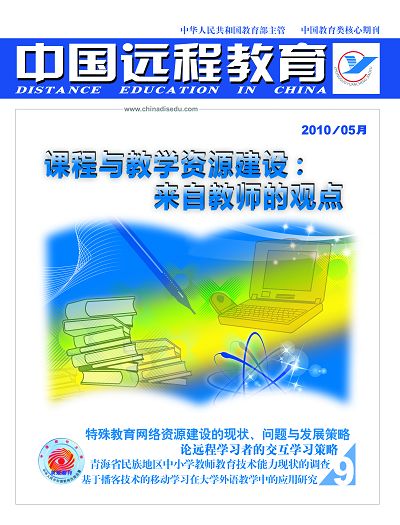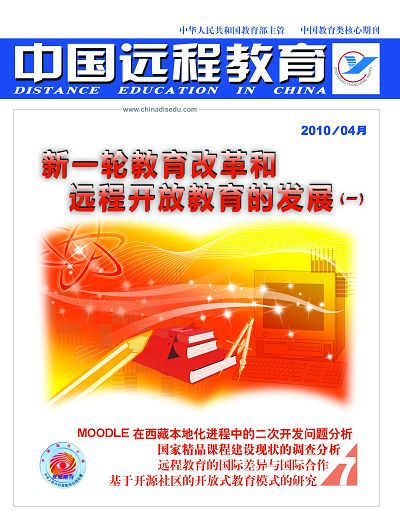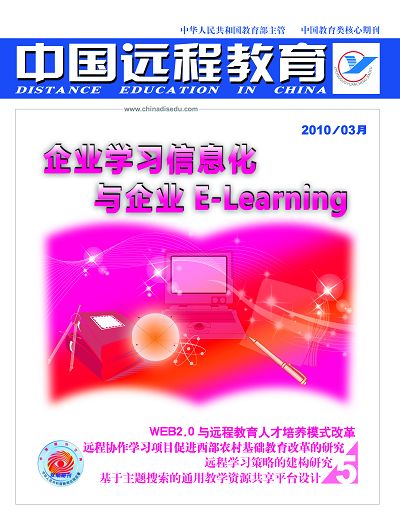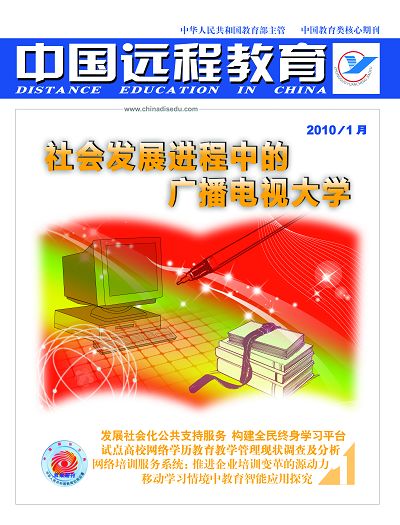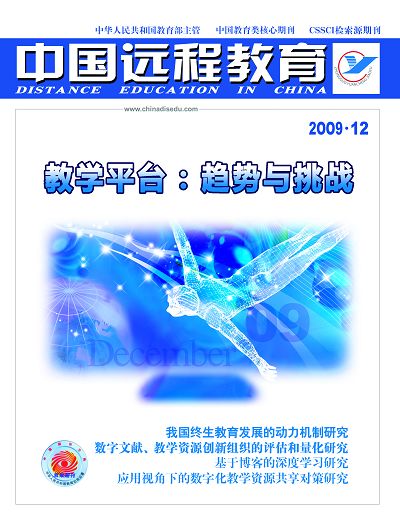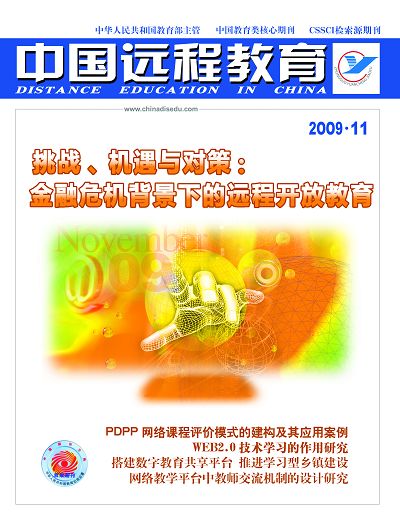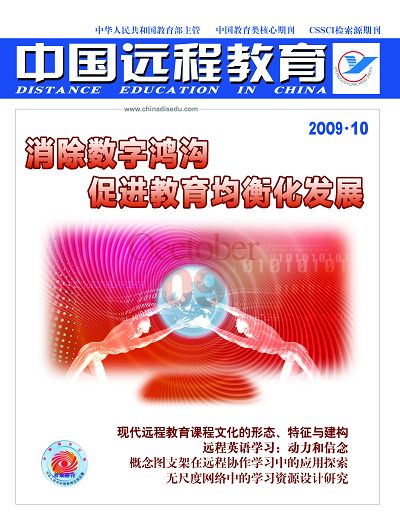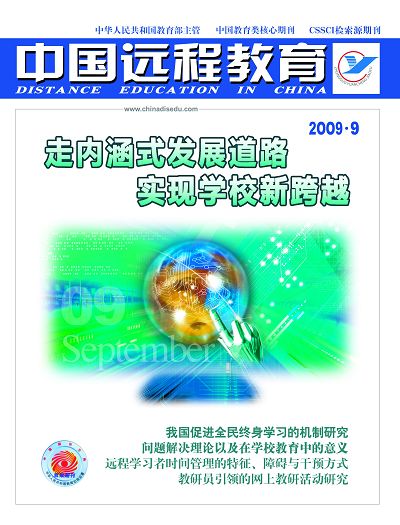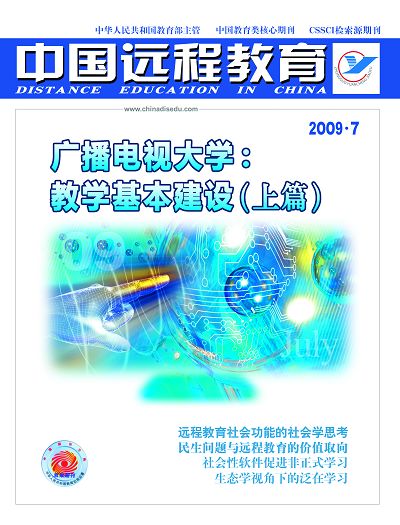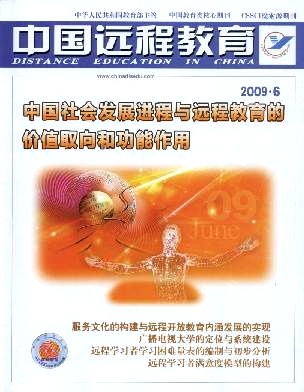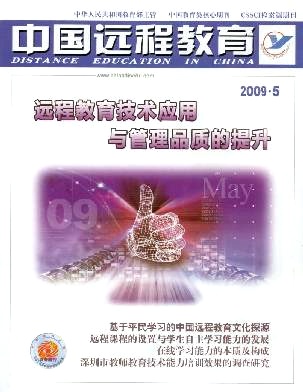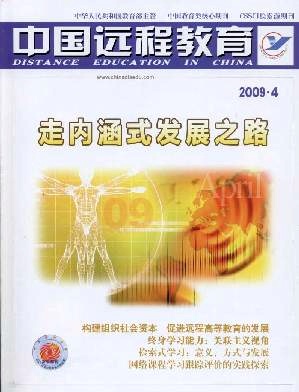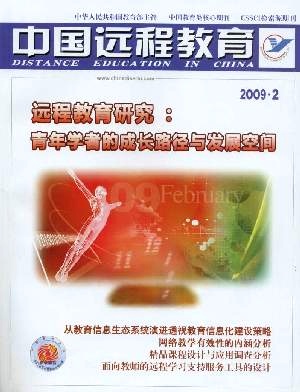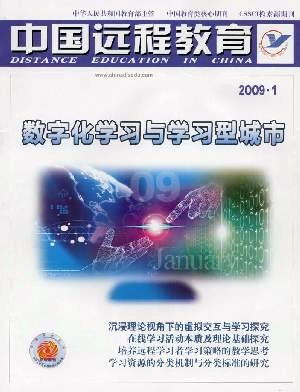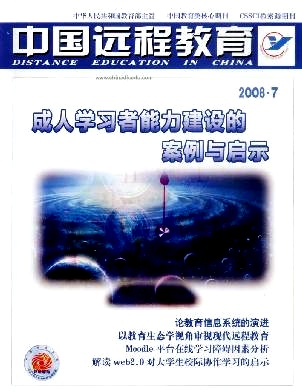
Contents:
- The Prospect for Provincial Radio & TV Universities: A Historical Perspective
- On the Evolution of Education Information System and the Formation of Education Information Ecosystem
- Modern Distance Higher Education: An Education Ecology Perspective
- Towards an Market-driven Open Education System
- The Effects of Synchronous and Asynchronous Online Discussion on Ddistance English Learning
- Analyzing Asynchronous Online Tutor-student Interaction
- Learning Environment Design for Distance Learners
- An Analysis of Moodle-based Online Learning Barriers
- Creating a Learning Community and Sharing Collective Education Wisdom: What can Web2.0 Offer to Promote Interscholastic Collaborative Learning in Higher Education Institutions?
- A Sample Survey on the Information Infrastructure and IT Application in Hunan Primary Schools
- Sustainable Development Strategies for UNDP403 Programme
- The Modern Distance Instruction Model Based on Affective Computing and Web3D Technology
- A Study on the Online Learning Evaluation System based on Bayesian Network Theory
- A Study of the Operation of Distance Education Institutions in Foreign Countries
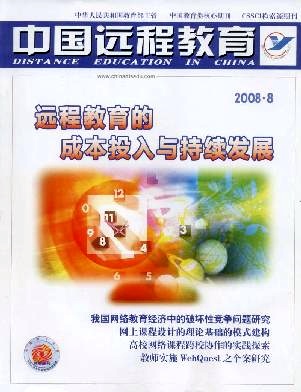
Contents:
- A Study on the Destruction of E-learning Economy in China
- A Macro Analysis of the Scale and Efficiency of Distance Education from the Perspective of Social Attributes and Humanistic Values
- The Impacts of Learning Cities on the Development of Urban OUs
- Issues Affecting Guangdong Open University's Development
- Theoretical Basics of Online Course Design
- Research in Personalized Learning Support in Distance Education
- Learning Difficulties of Distance Learners in Online RUC: Investigation and Analysis
- Cross-Campus Collaboration in Web Courses: A Case Study of the Course Learning Science and Technology
- Self-Designed Learning Resources by Distance Learners
- Open Education Resources Developed by Non-Governmental and Non-Profit Organizations: A Case Study of the Website
- The Use of WebQuest in Primary and Secondary Education: A Case Study
- An Analysis of Research in Modern Distance Education in Primary and Secondary Schools in Rural Areas
- Mobile Learning and Mobile Services: Practice and Research
- Towards a Digital Rights Management System Model for Educational Resources
- Credit Transfer within South Regional Education Board in America: Policy and Practice
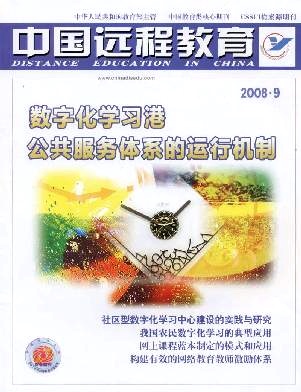
Contents:
- Reflections on the E-Learning Hub Project
- The Operating Mechanism of the E-Learning Hub as a Public Service System
- Constructing Community E-Learning Centers: Practice and Research
- E-Learning Countryside: A Case Study of a Village in Beijing
- The Construction of the Public Service System and and the Development of Radio and TV Universities
- Fostering School Culture for Modern Distance Education Institutions: A Review
- Developing and Applying Online Course Prototypes
- Analyzing Moodle-based Collaborative Learning
- On the Validity of Distance Oral Examination of Graduation Thesis
- Public Online Education Service System in Operation: A Chinese Literature Review
- Developing an Effective Incentive Mechanism for Online Education Teachers
- A Cost Analysis of the Development of Modern Distance Education Course Resources for Rural Primary and Secondary Schools
- Management and Use of Distance Education Resources in Poverty-stricken Mountainous Areas
- Research on the Rationale behind the Design of Distance Teaching and Management System: A Case Study of LSMS
- European Distance Education International Course Exchange Program: A Review
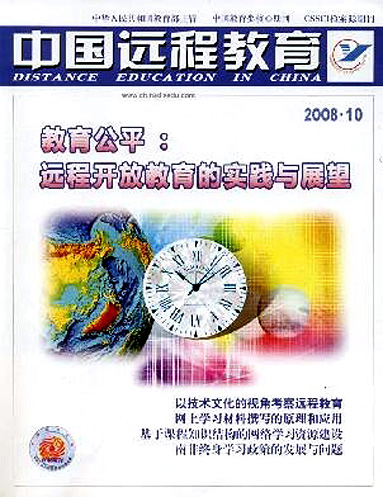
Contents:
- Influence of Macro Environment Changes on the Demands for OU Education
- The 4th Subcommittee of OUC Advisory Committee for Reform and Development
- Distance Education from a Technological Culture Perspective
- Safe Harbor or Inhibiting Magic Phrase: Copyright Issues in Online Distance Education from a Constitutional Perspective
- Writing Online Learning Resources: Principles and Applications
- Learning Support in Rural Distance Education: a New Perspective
- Learner Adaptability in the One-University-Student-in-One-Village Plan: Problems and Solutions
- Online Learning Resources Based on Knowledge Structure of the Course: Design and Implementation
- Constructing Learning Communities: Essentials, Methods and Models
- Modern Distance Education Evaluation and Accreditation in China: Practice and Development
- Local Educational Resources in the Modern Distance Education Project in Rural Primary and Secondary Schools: Design and Development
- Three Ways to Promote Sustainable Development of Distance Education in Rural Primary and Secondary Schools
- Research in E-learning Tags based on Folksonomy
- Adaptive Models of Mobile Learning Instruments Based on Agent
- Lifelong Learning Policy in South Africa: Development and Issues
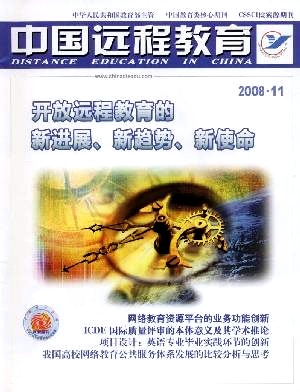
Contents:
- Legislation on Distance Education in Foreign Countries: Implications for Radio and Television Universities in ChinaFifth Sub-committee of the Advisory Committee of OUC
- Innovations in Using Online Education Resources Platforms
- Quality Audit by ICDE: Ontological Significance and Academic Deductions
- Learning through Projects: an Innovation in Undergraduate Thesis
- Conducting Experiments in Science and Engineering in Open and Distance Education
- Improving the Quality of Undergraduate Thesis in Open and Distance Education
- A Comparative Study of Public Service Systems for Online Education in Chinese Universities
- State Benchmark Courses: Problems and Solutions
- On the Adaptable Development of Modern Distance Education in Rural Primary and Secondary Schools
- Use of Information Technologies in Instruction and Their Effectiveness
- Researching Key Technologies of Remote Distributed Virtual Laboratory
- New Contributiong to International Distance Education Research: Interview with the Winner of 2008 AAOU Meritorious Service Award

Contents:
- Development of Online Education in Traditional Universities: Putting OUs in the Picture
- Sixth Sub-committee of the Advisory Committee of OUC
- Application of Ontology in the Construction and Interaction of Subject and Object in Web-based Learning
- Building A "Campus" Learning Culture in Modern Distance Education
- Changes in Learning in Web2.0 Environment: a Communication Analysis
- Wiki-based Design of Learning Activities
- Peer Review in Distance English Language Teaching
- Cluster Management of OUs' Libraries
- Instructional Design and Development of Online Resources of State Benchmark Courses: A Content Analysis
- Investigation of the Status Quo of IT Teachers in Qinghai Province
- Design of an E-learning Mode Based on Semantic Web
- A Study of the Application of Artificial Intelligence in Modern Distance Education
- Analyzing the Development Model of Distance Education in Norway
